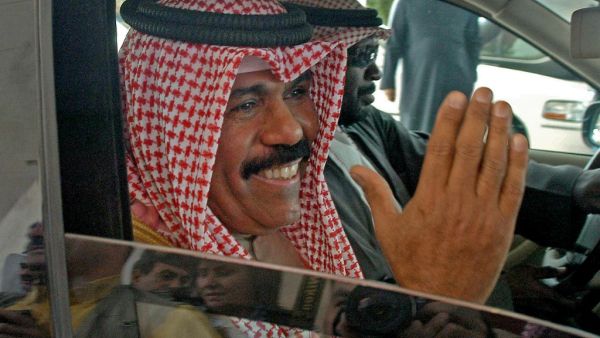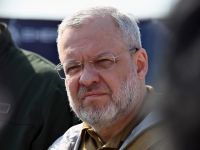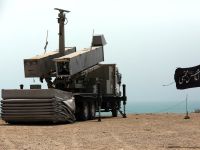Sheikh Nawaf al-Ahmad al-Jaber al-Sabah, who was sworn in as emir of Kuwait during a special ceremony at the Kuwaiti parliament Wednesday, said in his acceptance speech that he intends to follow in the footsteps of the late Emir Sheikh Sabah, who was buried yesterday.
As to who will become crown prince, Kuwaiti political sources expect the issue to be solved soon.
The sources confirmed to The Arab Weekly that Deputy Chief of the National Guard, Sheikh Mishaal al-Ahmad al-Jaber al-Sabah, who had accompanied the late emir during his stay in the United States for medical treatment, is considered to have the best chances of becoming the new crown prince.
The same sources, however, add that Sheikh Nasser al-Mohammad al-Ahmad al-Sabah, the former prime minister, cannot yet be excluded from the race, since he has the backing of a large segment of the business community in Kuwait and is considered by many in the ruling family as a gentleman with excellent public relations skills.
Gulf diplomatic circles did not rule out a resolution to the situation with Sheikh Meshaal al-Ahmad becoming Crown Prince and Nasser al-Mohammad becoming be prime minister.
They explain that Sheikh Meshaal is a strong-willed figure and carries a lot of influence inside the al-Sabah family, which makes him very likely to win the race for crown prince. They point out that on his arrival from the United States with the body of the late Emir, many members of the family greeted him at the airport in a sign of loyalty.
These same circles said that Sheikh Nasser Sabah al-Ahmad al-Sabah was out of the race for crown prince due to his health, which has caused him new problems. Sheikh Nasser al-Sabah suffers from lung cancer from which he was cured over two years ago, but new health complications have recently arisen.
The circles think Sheikh Meshaal is now pushing for a speedy settlement of the issue, as he knows that time is not necessarily on his side, particularly with the activity of the Muslim Brotherhood movement seeking to stop him from becoming the next crown prince.
Sheikh Nawaf al-Ahmad was sworn in before the National Assembly (Parliament), on Wednesday. He pledged to work for the prosperity, stability and security of the country.
“Today, our dear nation is facing a delicate situation and serious challenges that cannot be overcome except with unity of ranks and the concerted efforts of us all in sincere and hard work,” the new Emir told the National Assembly.
Sheikh Nawaf rules over a small but very rich country. Kuwait has the seventh largest oil reserves in the world. Kuwaiti citizens enjoy the largesse of a welfare state from cradle to grave, but recent developments have led the government to work on strengthening the country’s financial situation.
It is not expected that Kuwait will change its policies with regard to oil, investment and foreign affairs. Observers of Gulf affairs say that the priority for the new emir will be dealing with several internal issues, especially as political disputes are threatening the country’s stability.
These observers ruled out that Sheikh Nawaf would be enthusiastic about keeping the path of external mediation that Kuwait used to follow as a priority, noting that the results of previous efforts in this path were not encouraging, but rather the opposite. Mediation in the Qatar crisis, for example, has dragged Kuwait into the game of axes and brought it closer to Qatar, a situation it had not planned at all.
Diplomats and analysts say that Sheikh Nawaf will have these discouraging results in mind before taking any new move in this file, and that he is likely to focus more on internal affairs, such as choosing a crown prince who will manage the relationship with Parliament, which has often clashed with the government and obstructed economic reform efforts.
Under the constitution, the emir chooses the crown prince, but it is customary for the ruling family to hold a meeting to reach a consensus. The chosen candidate will be submitted to parliamentary approval.
The funeral of the late Emir Sheikh Sabah al-Ahmad took place yesterday at Sulaibikhat Cemetery, in the presence of a limited number of family members.
On the airport grounds, the body of the late Emir, wrapped in the country’s flag, was lowered from the plane and received by the new emir, who kissed it. Members of the Kuwaiti National Guard then carried the body to a waiting ambulance.
Funeral prayers were performed at Bilal bin Rabah Mosque, attended by Sheikh Nawaf, senior Kuwaiti officials, and a crowd of worshippers at the mosque for the afternoon prayer.
The usual COVID-19 precautionary measures of wearing face masks and keeping a safe distance inside the mosque were observed by all participants in the ceremony.
The burial ceremony was confined to close family members of the late Emir. A statement issued by the Minister of Amiri Diwan Affairs Sheikh Ali Jarrah al-Sabah said, “In compliance with the requirements of safety and public health, the Amiri Diwan appreciates the feelings of the honourable citizens and residents in expressing their sincere condolences … The office announces that attendance at the burial ceremony of His Highness’s pure body will be restricted to relatives of His Highness only.”
It was in last July that Sheikh Sabah al-Ahmad travelled to the United States for medical treatment, following a surgery performed in Kuwait the same month for an undisclosed illness.
This article has been adapted from its original source.








